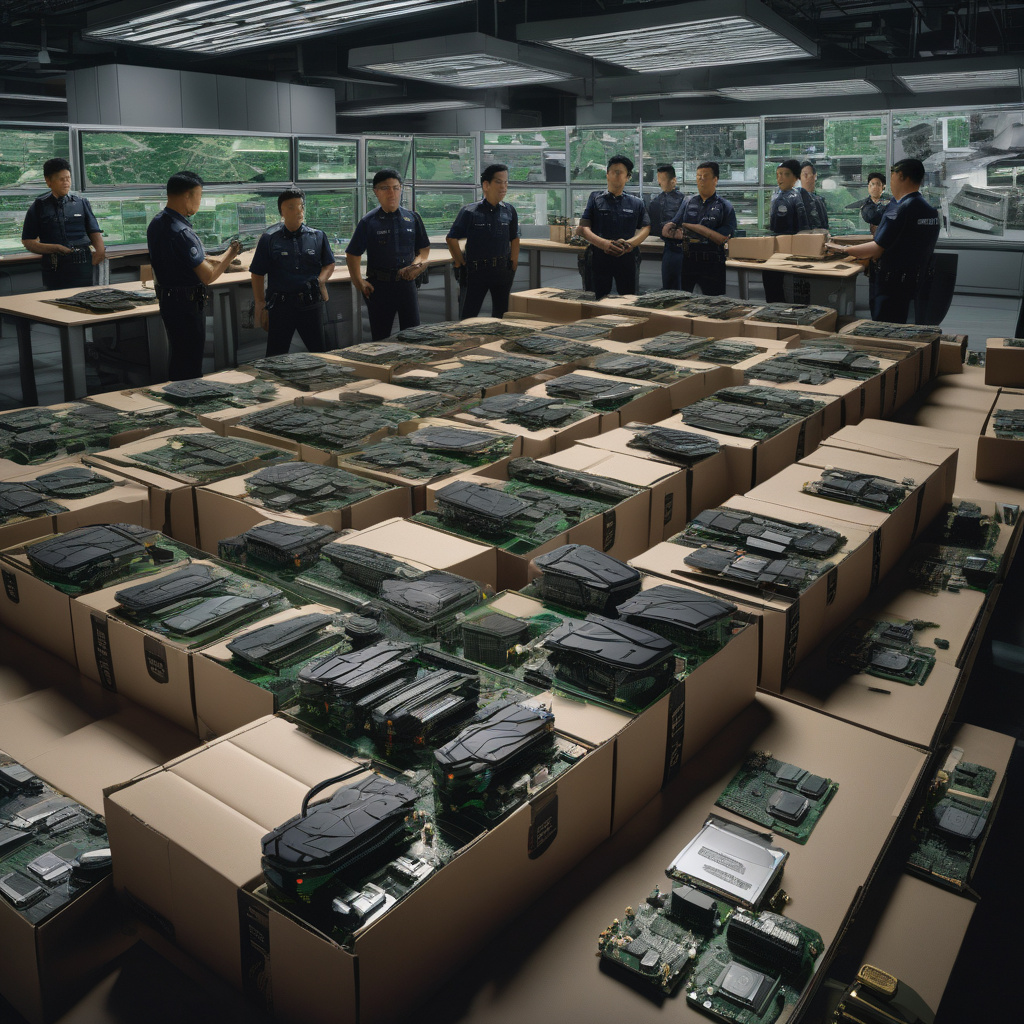Singapore Investigates Alleged Nvidia Chip Smuggling
The recent investigation into the alleged smuggling of Nvidia chips in Singapore has brought to the forefront the complex web of global tensions surrounding technology transfer restrictions between the United States and China. The case, which has captured the attention of industry experts and policymakers alike, underscores the challenges of navigating the intricate regulatory landscape that governs the flow of sensitive technologies across borders.
At the heart of the matter lies the longstanding trade dispute between the US and China, two economic powerhouses locked in a battle for technological supremacy. With the US imposing strict export controls on certain technologies to prevent them from falling into the hands of rival nations, the issue of compliance and enforcement has become a pressing concern for companies operating in the global marketplace.
Nvidia, a leading American semiconductor company known for its cutting-edge graphics processing units (GPUs), found itself embroiled in controversy when reports surfaced of its chips being illegally diverted to Chinese entities through Singapore. The alleged smuggling operation, if proven true, could have serious implications for Nvidia, potentially leading to hefty fines and reputational damage.
Beyond the immediate consequences for the companies involved, the case has broader implications for the technology industry as a whole. As governments around the world grapple with the challenge of balancing economic interests with national security concerns, companies must navigate a complex regulatory environment that is fraught with uncertainty and risk.
The Singapore investigation serves as a stark reminder of the need for companies to exercise due diligence in their compliance efforts and ensure that they are not inadvertently running afoul of export control laws. With the stakes higher than ever in an increasingly interconnected world, companies must take proactive steps to mitigate the risks associated with global supply chains and cross-border transactions.
In light of these developments, industry observers are calling for greater transparency and cooperation between governments, industry stakeholders, and regulatory bodies to address the challenges posed by technology transfer restrictions. By fostering a more collaborative approach to compliance and enforcement, countries can work together to promote responsible technology transfer practices and safeguard against illicit activities.
As the Singapore investigation unfolds and the implications for Nvidia and other technology companies come to light, one thing is clear: the issue of technology transfer restrictions is likely to remain a flashpoint in the ongoing geopolitical tensions between the US and China. How companies respond to these challenges will not only shape their own futures but also influence the broader trajectory of international trade and innovation.
In conclusion, the alleged Nvidia chip smuggling case in Singapore serves as a microcosm of the larger global tensions surrounding technology transfer restrictions. By shining a light on the complexities and risks inherent in the cross-border flow of sensitive technologies, the case underscores the need for vigilance, cooperation, and compliance in an ever-changing regulatory landscape.
Singapore, Nvidia, Chip Smuggling, Technology Transfer, Global Tensions












